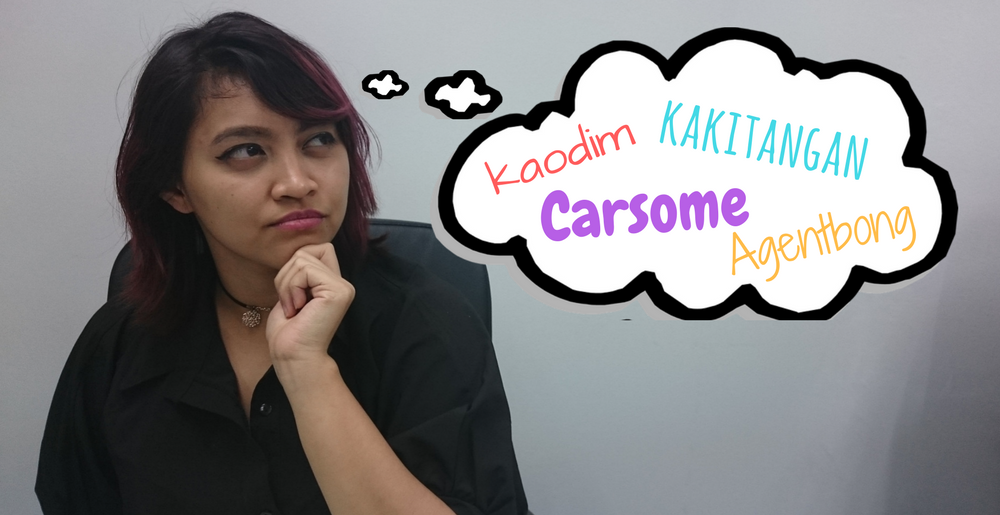Shakespeare wrote the iconic lines, “What’s in a name? That which we call a rose by any other name would smell as sweet” in his famous tale of two star-crossed lovers (Please tell me you don’t need me to name it).
Naming your startup is akin to naming your baby. Some may even argue more important, because instead of guzzling your money, this baby brings home the bacon (well, in the later stages hopefully).
As someone with an interest in literature and startups, I’ve decided to project Shakespeare’s classic prose to the millennial-favoured buzzword taking our modern world by storm.
So, what of Shakespeare and startups?
Is a sweet name sufficient to contribute to the success of startups, or is a spicier one needed?
Startups may opt to pay tribute to our tanah air and choose Malaysian (or Singaporean)-sounding names to add some local flavour.
Startups who believe in this spicier concept of “tambah pedas, ada kick” would want to bank in on localised slangs that the multitudes use every day.
They believe that this gives them added advantage in brand identification. Just ask startups such as dahmakan, Ais Kosong, Kaodim and Kakitangan.
In a previous article, Amir Hassan of Ais Kosong, that served as a discount discovery platform, explained the app’s localised name.
He said, “Ais Kosong is the first thing that people usually order when they want to save money, and similarly we want it to be the first app they think about when they want to save money.”
Effon Khoo of Kakitangan.com echoed Hassan’s sentiments, explaining that, “Kakitangan is a beautiful Malay word that carries the meaning of not only employees, but hands and legs, as the bonding of the company. Even in the Chinese language, the kaki or tangan has a direct meaning of brotherhood bonding.”
Just like how the word “mate” perks the ears of an Aussie, the word kaki holds a stronger bondage of friendship, connecting with local audiences more. After all, aren’t we always on the lookout for brunch kaki, concert kaki, hiking kaki and the likes?
Hence, striking a chord with the usage of local slang just might be the sweet note your startup needs.
However, startups that choose the localised route might run into a few obstacles with their names before their profit wheels start churning.
One of the more recent examples is the cleaning services platform Agent Bong. The Cantonese word “Bong” which means “help” was ironically not helping Agent Bong in translating their purpose to the public, resulting in a revised name—Agentbong.
Fortunately, language barriers were not strong enough to stop Agentbong from winning the Startup of the Year Award at the Startup Grind 2017 global conference held in Redwood City, California.
While this case study has a happier ending than others, startup founders should think about the potential plans (if any) to expand globally.
Just like how local audiences identify with the apps with localised names, how would the global audience understand what the app sells just by its name?
Brownie point: In a multi-racial country like Malaysia or Singapore, local slang might not apply to all citizens if the language or dialect is not a common one.
Whilst not a definite no-no, it would be helpful for founders to identify the targeted audience and see how certain names would impact them.
A secret weapon to brand identification without having to draw the line between localised or westernised names, wordplay is the witty (and occasionally sarcastic) friend you love to hang out with.
Running Man, Amazin’ Graze and Carsome are some of the few tongue-in-cheek named apps who give away just enough information on what they do, but not that much to keep you guessing (and searching up on what they do, leading to more views and eventual usage, yay!).
However, this shortcut may take a wrong turn and become a bad road trip if used without caution.
For example, I personally think Tealive is confusing and confusion leaves a slightly sour taste in my mouth (not ideal for a bubble-tea selling company).
There’s even a video going around on social media asking strangers how they pronounce Tealive. But hey, it gets people talking and that means free publicity right?
It’s all about minimalism these days, and you know how we millennials love minimalism.
Minimalistic startup names are short, simple and sweet, confined to one word and at most, two syllables.
A good case study would be the originally-named MyTeksi which, like all magical movie makeovers, rebranded into the sexier, more famous, Grab today.
Having used MyTeksi back in the day, the mere act of telling my friends I used the app would greeted with raised eyebrows and concerns.
Now, how many of us would say “I’ll Grab (or Uber) there”?
One of the advantages of simple names is that it has the potential to be turned into a verb. This is the epitome of a well-named company (provided it is well run, of course) as it is the ultimate goal of marketing and publicity achieved.
Don’t believe me? Google it.
This article was written and contributed by Esther Kuok. Esther attempts to answer the random questions in her multi-tracked mind through her writing. She can be found indulging in bites, something she prefers over bytes.











